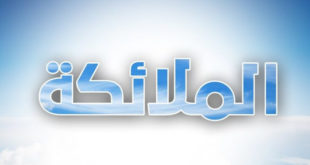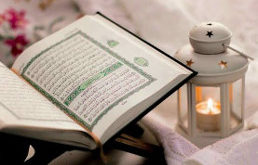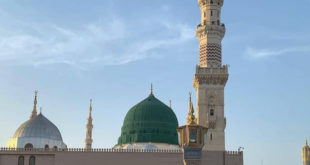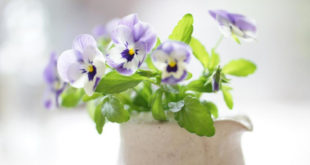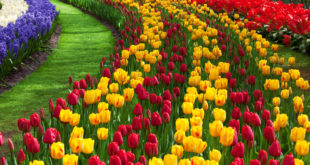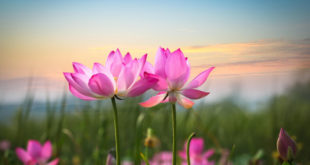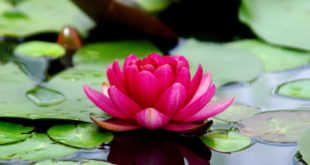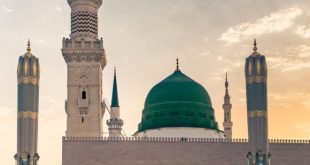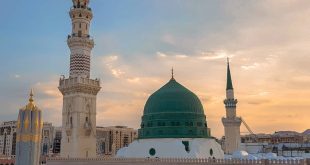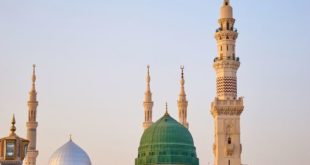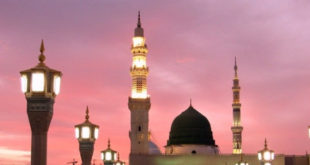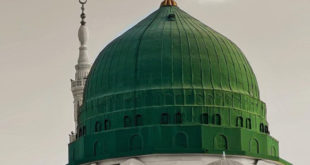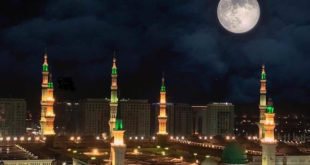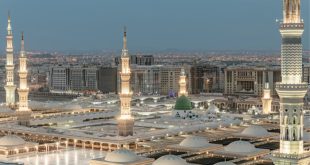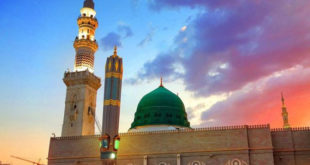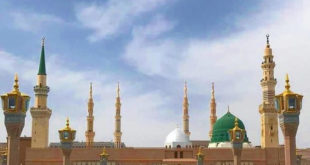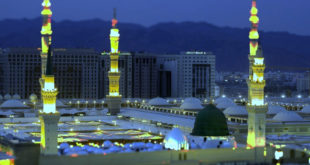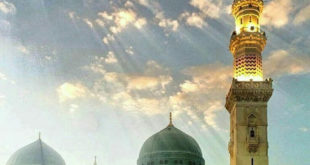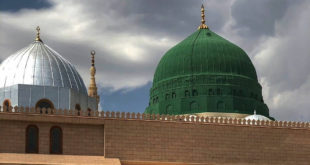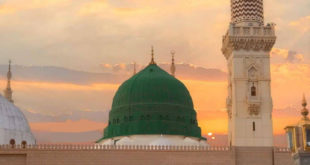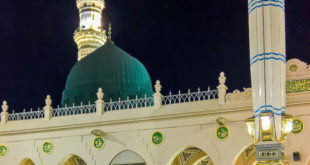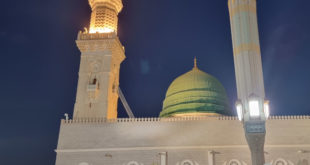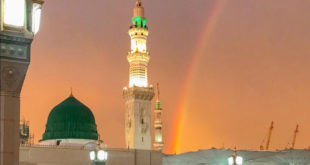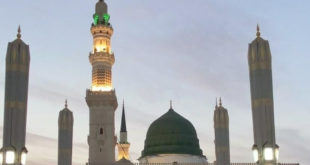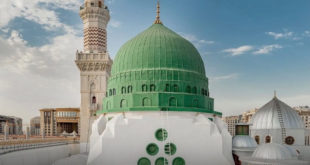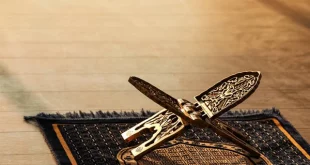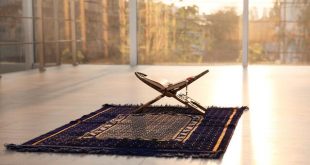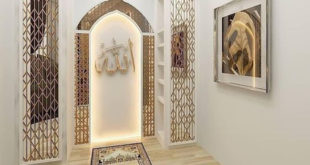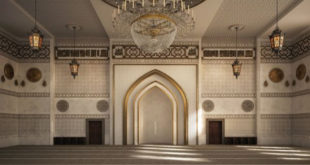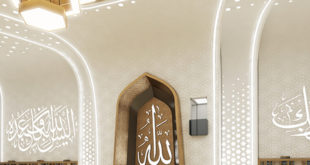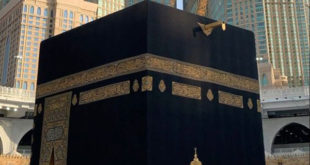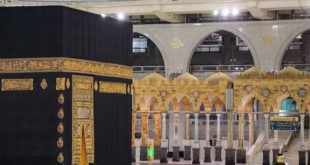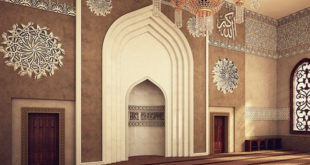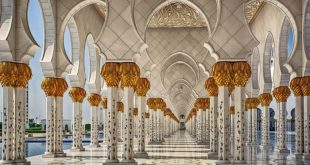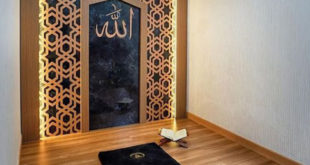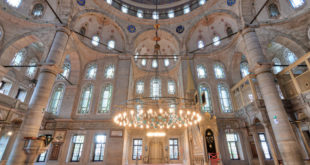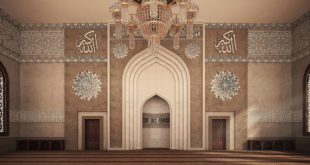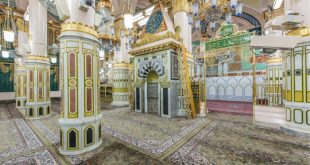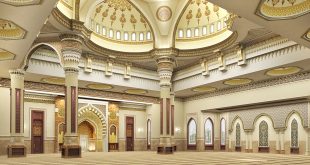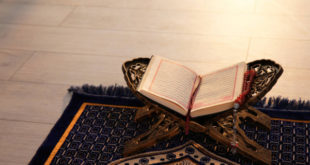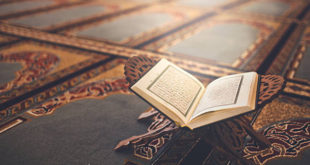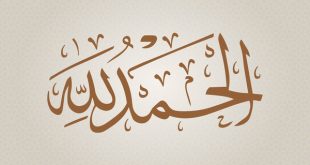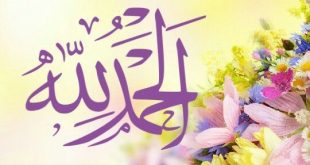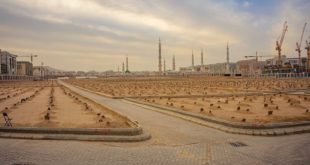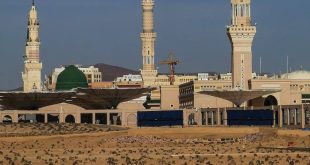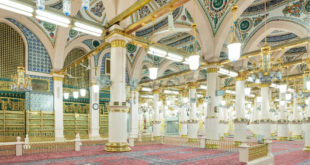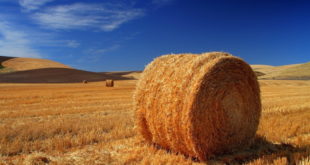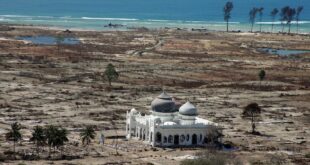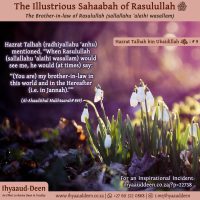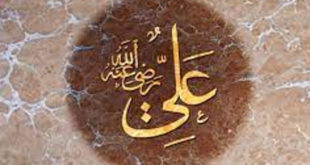1. When making istinjaa, use clods of sand[1] (or toilet paper) as well as water to clean yourself. Ensure that you fill the jug with water before relieving yourself, as you may put yourself through difficulty if there is no water.[2] عن أبي هريرة رضي الله عنه عن النبي …
Read More »Recent Posts
September, 2020
-
28 September
Beliefs regarding the Angels
1. Angels are a sinless creation of Allah Ta‘ala and are created from light. The angels are invisible to us, and they are neither male nor female. They are free from all human needs such as eating, drinking, sleeping, etc.[1] 2. Allah Ta‘ala has given them various duties to perform. …
Read More » -
28 September
The Way to Acquire Barakah through All Ibaadaat
Hazrat Moulana Ashraf Ali Thanwi (rahmatullahi ‘alaih) once mentioned: Engaging in zikr (the remembrance of Allah Ta‘ala) is a means of one acquiring great barakah (blessings of Allah Ta‘ala in his life). However, the complete effect of this zikr will only be seen when one refrains from all sins and …
Read More » -
28 September
Earning the Special Dua of the Angels
عن عامر بن ربيعة رضي الله عنه عن النبي صلى الله عليه و سلم قال: ما من مسلم يصلي علي إلا صلت عليه الملائكة ما صلى علي فليقلَّ العبد من ذلك أو ليكثر (سنن ابن ماجة، الرقم: ٩٠٧، وإسناده ضعيف كما في مصباح الزجاجة ١/١١٢) Hazrat Aamir bin Rabee’ah (radhiyallahu …
Read More » -
24 September
Having a Broad Chest
Hazrat Mufti Ebrahim Salejee (Daamat Barakaatuhu) mentioned: We should learn the masnoon du‘aa: اللَّهُمَّ اغْفِرْ لِي ذَنْبِي وَوَسِّعْ لِي خُلُقِي وَطَيِّبْ لِي كَسْبِى وَقَنِّعْنِى بِمَا رَزَقْتَنِي وَلَا تُذْهِبْ طَلَبِي إلَى شَيْءٍ صَرَفْتَهُ عنِّي O Allah, forgive my sins, expand (and broaden) my chest, bless me with pure income, grant me …
Read More »
-
The Brother-in-law of Rasulullah (sallallahu ‘alaihi wasallam)
Hazrat Talhah (radhiyallahu ‘anhu) was married to four wives. Each of his four wives was …
Read More » -
The Compass of the Hearts of the Sahaabah (radhiyallahu ‘anhum) – The Tolerance of Rasulullah (sallallahu ‘alaihi wasallam) – The Orchards of Love – Part Seventy Four
-
Tafseer of Surah Naazi’aat
-
The Extreme Generosity of Hazrat Talhah (radhiyallahu ‘anhu)
-
Securing the Blessings of Ramadhaan, Umrah and Hajj – The Tolerance of Rasulullah (sallallahu ‘alaihi wasallam) – The Orchards of Love – Part Seventy Three
-
Receiving Seventy Rewards
Hazrat Abdullah bin Amr bin Aas (radhiyallahu ‘anhuma) reported, “Whoever sends salutations upon Nabi (sallallahu ‘alaihi wasallam) once, Allah Ta‘ala and His angels will send seventy mercies and blessings upon him in return of his one Durood. Hence, whoever wishes to increase his Durood should increase it, and whoever wishes to decrease his Durood should decrease it (i.e. if he wants to earn great rewards, then he should increase his Durood).”
Read More » -
Increase in Sustenance
-
The Reward of Fasting on the Day of Arafah
-
The Angel that Stands at the Blessed Grave of Hazrat Rasulullah (sallallahu ‘alaihi wasallam) to Convey the Durood of the Ummah
-
Reciting Durood when Entering the Musjid
-
Sunnats and Aadaab of the Host – 3
3. Generosity and feeding the creation was a salient quality and attribute of all the …
Read More » -
Sunnats and Aadaab of the Host – 2
-
Sunnats and Aadaab of the Host – 1
-
Sunnats and Aadaab which every person needs to adhere to in his individual life – 9
-
Sunnats and Aadaab which every person needs to adhere to in his individual life – 8
-
Hazrat Ali (radhiyallahu ‘anhu) – Part Forty-One – Being Sent by Rasulullah (sallallahu ‘alaihi wasallam) to Level the Graves, Destroy Idols and Erase Pictures
Hazrat Ali (radhiyallahu ‘anhu) reports that on one occasion, Rasulullah (sallallahu ‘alaihi wasallam) attended a …
Read More » -
Rasulullah (sallallahu ‘alaihi wasallam) Approving of the Verdict of Hazrat Ali (radhiyallahu ‘anhu) – Part Forty
-
The True Ulamaa – Hazrat Ali (radhiyallahu ‘anhu) – Part Thirty Nine
-
Du‘aa for Assistance in Settling Debts – Hazrat Ali (radhiyallahu ‘anhu) – Part Thirty Eight
-
The Concern of Hazrat Ali (radhiyallahu ‘anhu) regarding Business being Conducted According to the Islamic Principles – Part Thirty Seven
 Ihyaaud Deen An Effort to Revive Deen in Totality
Ihyaaud Deen An Effort to Revive Deen in Totality

